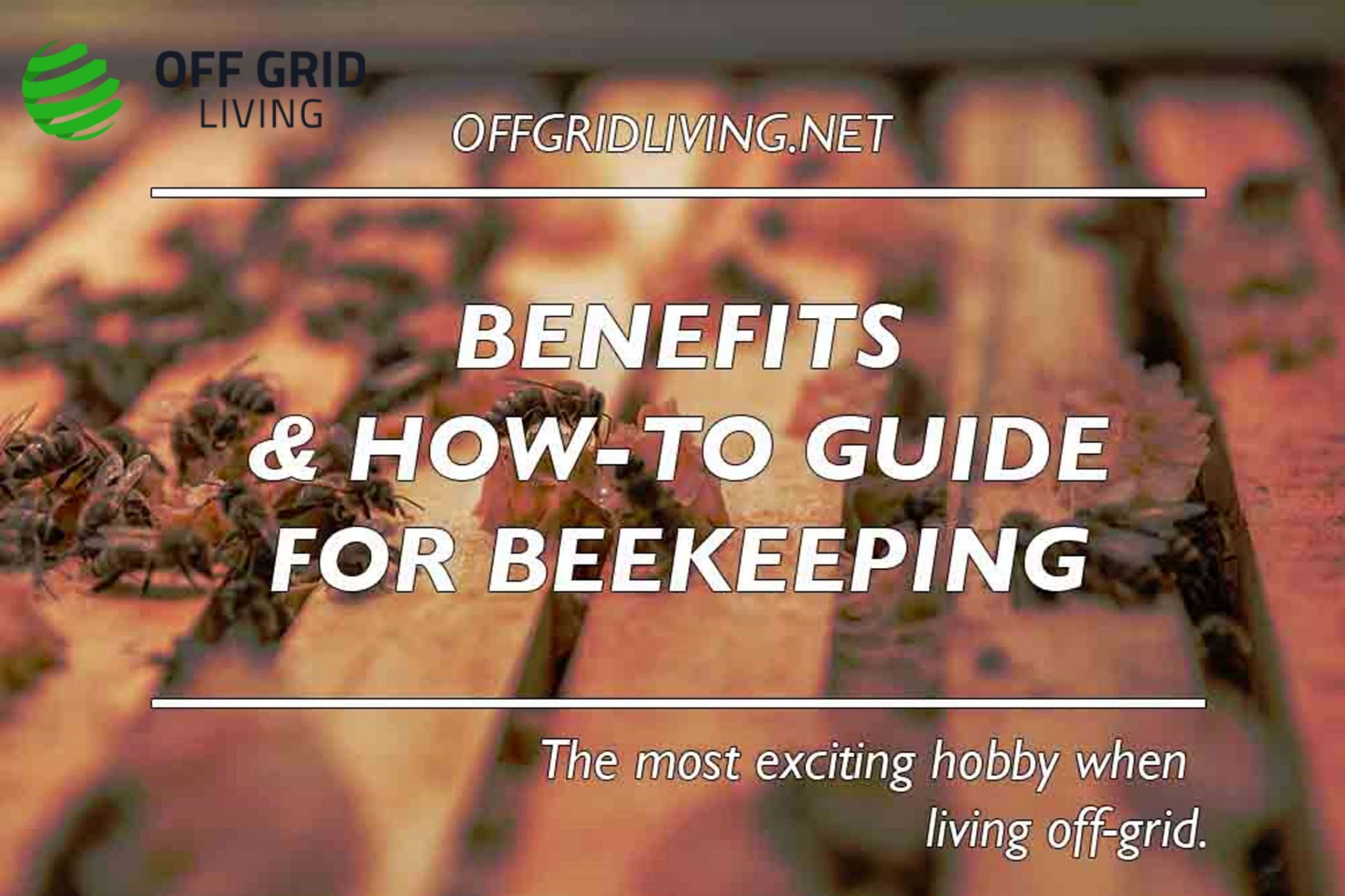Embracing Off-Grid Living: A Wealth of Benefits

Embracing Off-Grid Living: A Wealth of Benefits
Living off-grid has become an increasingly popular lifestyle choice, offering a range of benefits for those seeking greater self-sufficiency and sustainability. In this article, we’ll explore the advantages of embracing off-grid living and how it can be a viable and rewarding option for those looking to break free from traditional utilities.
Energy Independence: Generating Your Power
One of the primary benefits of off-grid living is energy independence. By harnessing renewable energy sources such as solar or wind power, individuals can generate their electricity. This self-sufficiency not only reduces reliance on conventional power grids but also provides a consistent power supply even in remote locations.
Environmental Sustainability: A Greener Footprint
Off-grid living aligns with a commitment to environmental sustainability. Choosing renewable energy sources and minimizing reliance on fossil fuels contribute to a reduced carbon footprint. Off-grid homes often incorporate eco-friendly practices, such as composting, rainwater harvesting, and energy-efficient appliances, further minimizing environmental impact.
Cost Savings: Breaking Free from Utility Bills
Living off-grid can lead to significant cost savings over time. While the initial setup of an off-grid system may require an investment, the ongoing savings from not paying utility bills can outweigh the upfront costs. Off-grid living allows individuals to break free from the cycle of monthly bills, leading to greater financial freedom.
Self-Sufficiency: Growing Your Own Food
Off-grid living often goes hand in hand with self-sufficiency, including growing your food. Many off-grid enthusiasts cultivate their gardens, ensuring a fresh and sustainable source of produce. This not only reduces reliance on commercial food sources but also promotes a healthier and more connected lifestyle.
Water Independence: Harvesting Rainwater
In addition to energy independence, off-grid living often involves water independence. Harvesting rainwater is a common practice among off-grid enthusiasts, providing a free and sustainable source of water for various household needs. This practice reduces the demand on local water supplies and adds another layer of self-sufficiency.
Remote Location Freedom: Choosing Your Setting
Off-grid living provides the freedom to choose a remote location that aligns with personal preferences. Whether nestled in the mountains, surrounded by forests, or situated in a desert landscape, off-grid enthusiasts can select a setting that complements their lifestyle and offers a deeper connection to nature.
Resilience: Thriving in Challenging Times
Off-grid living fosters resilience in the face of challenges. Whether dealing with power outages, water shortages, or other disruptions, individuals accustomed to off-grid living often develop resourcefulness and adaptability. This resilience can be invaluable in navigating unexpected situations.
Community Connection: Embracing Like-Minded Networks
Contrary to the notion of isolation, off-grid living often involves a strong sense of community connection. Like-minded individuals come together to share knowledge, resources, and support. Off-grid communities foster a collaborative spirit that contributes to the well-being of everyone involved.
Personal Freedom: Crafting Your Lifestyle
Ultimately, off-grid living offers unparalleled personal freedom. Individuals can design their homes, implement sustainable practices, and craft a lifestyle that aligns with their values. This freedom extends to daily choices, from energy sources to waste management, allowing for a customized and intentional way of living.
Off-Grid Benefit Option: Your Guide to Sustainable Living
For comprehensive guidance on embracing off-grid living and reaping its multitude of benefits, visit Off-Grid Benefit Option. The website offers expert advice, practical tips, and valuable resources to support your journey towards a more sustainable, self-sufficient lifestyle. Explore Off-Grid Benefit Option for a wealth of information on off-grid living and start your path to a more intentional and fulfilling way of life.
Off-Grid Living Benefit: Thriving Independently with Nature

Embracing Independence: The Off-Grid Living Benefit
Living off the grid has become more than a lifestyle choice; it’s a testament to self-sufficiency and environmental consciousness. This article delves into the myriad benefits of off-grid living, exploring how individuals choosing this path can thrive independently while fostering a deeper connection with nature.
Defining Off-Grid Living: A Lifestyle Beyond the Utility Lines
Off-grid living is a lifestyle that transcends the conventional utility infrastructure. Individuals and communities choosing this path disconnect from the centralized power grid, water supply, and other municipal services. Instead, they generate their electricity, source water locally, and rely on sustainable practices to meet their needs.
Energy Independence: Generating Power Off the Beaten Path
One of the primary benefits of off-grid living is energy independence. Off-gridders harness various renewable energy sources, such as solar panels, wind turbines, or micro-hydro systems, to generate their electricity. This not only reduces reliance on traditional power grids but also provides a reliable and sustainable energy source, often in harmony with the surrounding environment.
Sustainable Water Solutions: Local Sources, Minimal Impact
Off-grid living goes hand in hand with sustainable water solutions. Off-gridders often rely on local water sources, such as wells, springs, or rainwater harvesting systems. By minimizing water consumption and implementing eco-friendly wastewater management practices, they reduce their environmental impact and contribute to the preservation of local ecosystems.
Environmental Stewardship: Reducing Carbon Footprints
The off-grid living benefit extends to positive environmental stewardship. By generating energy locally and embracing sustainable practices, individuals living off the grid significantly reduce their carbon footprints. This conscious choice helps mitigate climate change, preserve natural resources, and fosters a deeper respect for the delicate balance of ecosystems.
Financial Freedom: Minimizing Utility Bills
Off-grid living offers financial freedom by minimizing or eliminating utility bills. While the initial investment in renewable energy systems may be substantial, the long-term savings on electricity and water bills contribute to financial independence. Off-gridders often find that their initial investments pay off over time, resulting in a more sustainable and cost-effective lifestyle.
Remote Living: Embracing Seclusion and Serenity
For many off-gridders, the allure lies in the seclusion and serenity of remote living. Choosing to live off the grid often means residing in less populated or rural areas, surrounded by nature. This remote lifestyle allows individuals to reconnect with the natural world, find solace in tranquility, and create a harmonious relationship with their surroundings.
Self-Sufficiency Skills: Nurturing Independence
Off-grid living fosters a culture of self-sufficiency and resilience. Individuals learn essential skills for survival, such as growing food, raising livestock, and basic homesteading practices. This nurturing of independence empowers off-gridders to be more self-reliant, adaptable, and capable of thriving in a variety of circumstances.
Community Connection: Building Collaborative Off-Grid Networks
While off-grid living often implies a degree of seclusion, it also fosters a unique sense of community connection. Off-gridders form collaborative networks, sharing knowledge, resources, and support. These communities become microcosms of sustainable living, where individuals exchange ideas, skills, and encouragement to enhance their off-grid lifestyles.
Challenges and Considerations: Navigating the Off-Grid Path
While the benefits of off-grid living are compelling, it comes with its challenges and considerations. Individuals must navigate issues such as limited access to conveniences, potential regulatory hurdles, and the need for careful resource management. Despite these challenges, many find the rewards of a simpler, more connected lifestyle well worth the effort.
Explore Off-Grid Living Today
Ready to explore the freedom and connection that off-grid living offers? Visit Off-Grid Living Benefit for a wealth of resources, guides, and insights. Whether you’re considering a complete off-grid lifestyle or incorporating off-grid elements into your current living situation, the available information will empower you to embrace a more self-sufficient, eco-conscious, and fulfilling way of life.
